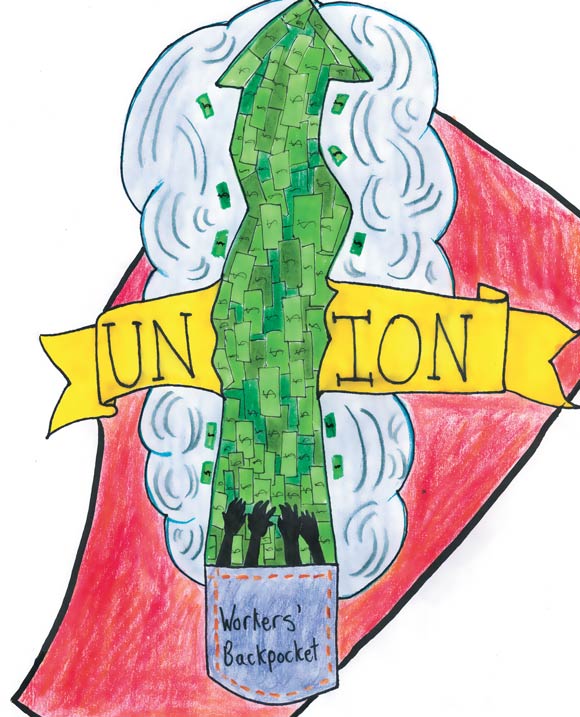
Unions aren’t to blame for the province’s budget
By Andrew Kemle, March 12 2015 —
Alberta is facing difficult economic times. In the face of this uncertainty, Premier Jim Prentice is warning public sector employees that they’ll have to shoulder some of the burden.
He can dance around it all he likes, but Prentice is talking about decreasing the wages and benefits of public sector workers to make up for the upcoming $7-billion budget shortage that Alberta faces.
Attempting to solve Alberta’s finances by taking from public-sector workers will do nothing but negatively impact government services. Unionized public employees form the backbone of this province, with members ranging from lab technicians at the University of Calgary to emergency room nurses.
It’s also more than fair compensation that Prentice wants to put on the table. He’s been talking about overhauling the collective bargaining process. When politicians say this, they’re talking about taking away the ability of workers to organize and bargain for better wages and working conditions. In a province where the corporate-tax rate is the lowest in Canada and the highest income earners pay the same 10 per cent income tax as the lowest, Prentice is going after unions as a problem that needs to be fixed.
His government insists that it’s fair to ask public workers to shoulder some of the burden of Alberta’s declining oil revenues because they already receive higher wages than most Canadian public servants. This is true, but the context of these higher salaries is important.
On average, Albertan workers, both private and public, are paid more than the Canadian average. This is because of both oil wealth and increased cost of living. The difference in pay is negligible when the cost of living is factored in.
There are a lot of ways to balance the budget. The government could introduce a progressive income, corporate or sales tax. But Prentice is going after parts of the population that already take up the bulk of the burden of Alberta’s falling oil revenues.
Middle-class families and workers form the bulk of Alberta’s consumer spending power. The idea that a weak middle class leads to a weakened economy is rudimentary economics. It’s cliché at this point, but a strong middle class does make for a stronger economy.
Union workers, students, teachers and public employees already carry more than their fair share of Alberta’s economic burden. Asking them to take reduced wages while leaving the province’s richest people and corporations untouched and untaxed is unfair.
